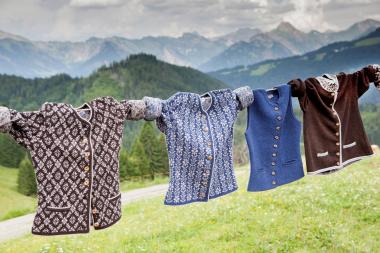KARL MAYER STOLL: CREATE PLUS for production of Knitted traditional clothing
- Astrifa GmbH relies on CREATE PLUS for the production of its knitted traditional clothing
Astrifa GmbH was founded in 1948 in Lower Bavaria, moved to its current location in 1953 and began specializing in traditional costume clothing in 1978. The company has around 70 employees and produces around 700 items for men, women and children every week. The finest merino wool from England is processed and the machinery consists exclusively of STOLL machines, in total 17 flat knitting machines, including the latest representatives of the ADF and CMS series. Astrifa also relies on pioneering solutions when it comes to programming the machines: CREATE PLUS is used alongside other patterning systems.
The CREATE PLUS software combines a full-featured, advanced programming system with an easy-to-learn user interface, revolutionizing the programming of STOLL flat knitting machines. This has also aroused great interest at ITMA 2023. New versions are released every four months; in addition to many detailed improvements, the current release contains a greatly expanded system for multi-part knitting compared to the previous software and an extensive option for creating reports and statistics.
KARL MAYER Verwaltungsgesellschaft mbH








